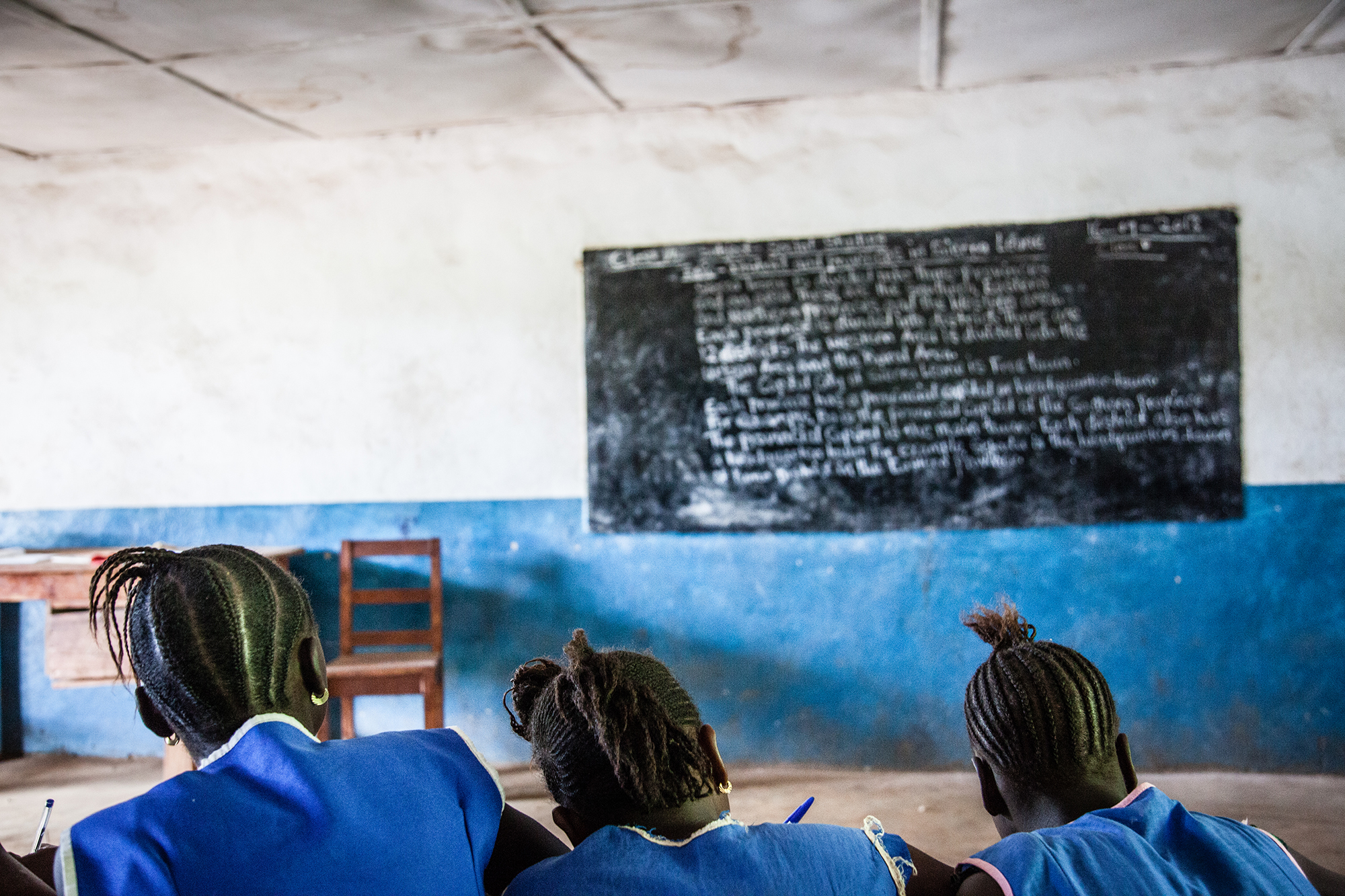
By Abby Saleh, Press intern, AIUSA
Thousands of pregnant girls are being excluded from school because of a rule issued by Sierra Leone’s government. In April of 2015, the Minister of Education, Science and Technology issued a statement banning all pregnant girls from school settings. This immediately went into action, and thousands of girls were denied access to education and were barred from taking exams. The government justified the policy as the protection of “innocent girls” from negative influences, which stigmatizes pregnant girls.
Many of these girls become pregnant as a result of sexual violence or a lack of sex education. Sierra Leone failed to protect these girls from sexual violence, and it failed them by removing sexual and health education from their school curriculums many years ago. These girls should not be punished, and should be granted the same rights as any other child.
“The prohibition on visibly pregnant girls attending mainstream schools and taking exams is hopelessly misguided, and is doing nothing to address the root causes of Sierra Leone’s high teenage pregnancy rate, which surged during the devastating Ebola crisis, and remains high despite this ban,” said Alioune Tine, Amnesty International’s Regional Director for West and Central Africa. “Rather than humiliating and excluding teenage girls, Sierra Leone’s authorities should focus on increasing sexual and reproductive health information in schools, and protecting girls from sexual violence and abusive relationships. Unless these issues are addressed, the cycle of unwanted early pregnancy will continue for generations to come.”
It has been reported that girls are being put through humiliating and degrading treatment such as being compelled to take pregnancy tests and going through intrusive physical searches. This is traumatizing, and puts them at an increased risk of abuse. Many girls stated that this treatment left them feeling abandoned and discouraged. They were not allowed to participate in the exams they had been preparing for, thus forcing them to be left behind. Not only are they left behind in their studies, but they are also ostracized and abused by their families and communities.
These actions are discriminatory and a violation of rights enshrined in international conventions, and they have a negative impact on the future of the country. Education is a human right and should be accessible to every child, regardless of their condition. It is critical to the development of the child and the progression of a society to ensure that girls are educated. This ban will only cause these girls to be more at risk of violence and discrimination, as well as impact the stability of the country’s economy, health, mortality rates, and more. These levels of discrimination will also have a severe psychosocial impact on females in the country for many years to come, possibly impacting the next generation as well.
The government of Sierra Leone responded to this crisis due to international and national pressure. President Ernest Bai Koroma announced the establishment of an alternative “bridging” education system that would allow pregnant girls to continue going to school. Separate, but supposedly equal. This attempt by the government at “protecting values and culture” while claiming to maintain its obligations under international standards is still not a good solution for the issue. Although many girls registered immediately and had positive things to say about the bridging system, they were still being stigmatized and ostracized for the situation they were in. The bridging program ended in August of 2016, but another education program for pregnant girls, or any girl who dropped out of school, was put into place with the help of UNICEF. Though this new program has been well received by the international community, it still does not grant pregnant girls the right to take exams. Also, concern still remains about the lack of choice for pregnant girls due to the ban and their inability to sit in on exams. It also does not guarantee access to sex education, which would be a violation of Sierra Leone’s legal obligation to provide equal access to quality education for all children.
Beyond the scope of education, these young girls are being heavily subjected to discrimination. Regardless of Sierra Leone’s government commitment to meeting international standards, its policy blatantly stigmatizes these girls, which not only reinforces the negative stereotypes surrounding them, but discriminates and ostracizes them from society just the same. This cannot but impact the psychosocial development of these girls. How can they properly develop within societies that have labeled them as the devalued other? We need to remember that separate but equal is not equal.
